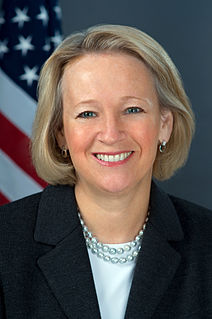A Quote by Barry Ritholtz
It is important for investors to understand what they do and don't know. Learn to recognize that you cannot possibly know what is going to happen in the future, and any investment plan that is dependent on accurately forecasting where markets will be next year is doomed to failure.
Related Quotes
Too often, investors are the target of fraudulent schemes disguised as investment opportunities. As you know, if the balance is tipped to the point where investors are not confident that there are appropriate protections, investors will lose confidence in our markets, and capital formation will ultimately be made more difficult and expensive.
Why don't we all just go crazy when we know were going to croak? Because the mind's a monkey. You put things in departments and you go ahead. You go on and plan for the future and assume that the future's going to work out okay. Yet we know that sooner or later we're all going to be eating worms, whether it's fifty years or sixty. It might be tomorrow. It might happen today.
I think that intelligent forecasting (company revenues, earnings, etc.) should not seek to predict what will in fact happen in the future. Its purpose ought to be to illuminate the road, to point out obstacles and potential pitfalls and so assist management to tailor events and to bend them in a desired direction. Forecasting should be used as a device to put both problems and opportunities into perspective. It is a management tool, but it can never be a substitute for strategy, nor should it ever be used as the primary basis for portfolio investment decisions.
Perfectionist is sometimes the wrong word... It means like you're never satisfied, or you're upset by every single failure - any type of failure. And so for me, I don't look at failure as necessarily a bad thing as long as I'm able to learn from it and take something from it, so that next time I'm in that situation I know how to succeed.
The Treasury plan is a disgrace: a bailout of reckless bankers, lenders and investors that provides little direct debt relief to borrowers and financially stressed households and that will come at a very high cost to the US taxpayer. And the plan does nothing to resolve the severe stress in money markets and interbank markets that are now close to a systemic meltdown.

































